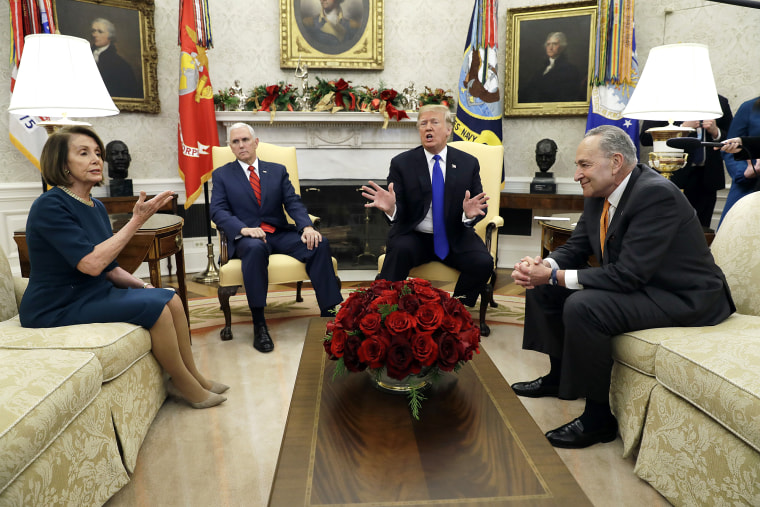In mid-May, House Democrats saw the CARES Act's expiration on the horizon and took steps to stay ahead of the problem. The lower chamber approved an ambitious, $3 trillion aid package, which would extend benefits to struggling families, businesses, and communities through the end of the year.
As we've discussed, Republicans soon after responded with ... very little. The Republican-led Senate never voted on an alternative package, and when GOP leaders unveiled their preferred blueprint, many of their own members balked. There were some bipartisan negotiations, which went nowhere, and at the end of July, CARES Act aid came to a halt.
A month ago today, Donald Trump announced a series of executive actions, which he said would "take care of, pretty much, this entire situation." Even his own administration has conceded these presidential steps did not, in fact, solve the problem.
And so, with Labor Day over and Congress returning to work, is there any reason to believe an economic aid package may yet come together? At a press conference yesterday, a reporter asked the president why he doesn't at least try to negotiate with congressional Democratic leaders on a possible deal. Trump replied:
"[L]et me just tell you: I know my customers; that’s what I do. I know Pelosi, I know Schumer very well. They don’t want to make a deal because they think it’s good for politics if they don’t make a deal.... I don’t need to meet with them to be turned down. They don’t want to make a deal because they know that’s good for the economy. And if they make a deal that’s good for the economy, and therefore it’s good for me for the election in November 3rd, and therefore they’re not going to make a deal."
Putting aside the odd reference to "customers," this train of thought may appear to have a certain logic to it: if Democrats refuse to approve an aid package, the economy will suffer, and if the economy suffers, voters might punish the incumbent president. Ergo, House Speaker Nancy Pelosi (D-Calif.) and Senate Minority Leader Chuck Schumer (D-N.Y.) have an incentive to reject an agreement that would give the economy a significant boost.
The trouble, however, is that Trump has all of this precisely backwards. If Democrats were trying to sabotage the economy, they wouldn't have taken the lead on crafting the CARES Act in March; they wouldn't have passed an even more expansive HEROES Act in May; and they wouldn't have sat down at the negotiating table, pressing White House officials to invest more in the economy.
No one in the nation's capital seems more focused on doing what's "good for the economy" than the Democrats who've actually passed an aid package that would be good for the economy. Whether the president is unaware of these developments or simply lying to the public is unclear.
For his part, Senate Majority Leader Mitch McConnell (R-Ky.) this morning announced plans to unveil a new, "targeted" economic bill today, which he said would come to the floor for a vote "as soon as this week."
By all appearances, this is intended as theater: the GOP leader wants to give the appearance of doing meaningful work, even if this new measure does little to move policymakers closer to an actual agreement.
McConnell's bill will need 60 votes to advance, and as things stand, it's not yet clear if it even enjoys the support of all 53 Senate Republicans.
Complicating matters, Congress will soon wrap up its pre-election work -- members who'll be on the ballot want to be in their home states and districts, not on Capitol Hill -- creating a narrow window for progress, which appears to be closing.
Update: McConnell's new bill will reportedly carry a $300 billion price tag. This not good news: as bipartisan and bicameral talks took shape, Republicans originally eyed an economic aid bill worth roughly $1 trillion, while Democrats eyed a package worth roughly $3 trillion. Democratic leaders eventually said they were prepared to split the difference, embracing a $2 trillion bill, if GOP leaders would agree to meet them in the middle.
Team Trump balked. And now Republicans are apparently looking at a $300 billion proposal. Or put another way, the party appears to be moving further away from a compromise, instead of moving closer to one.
